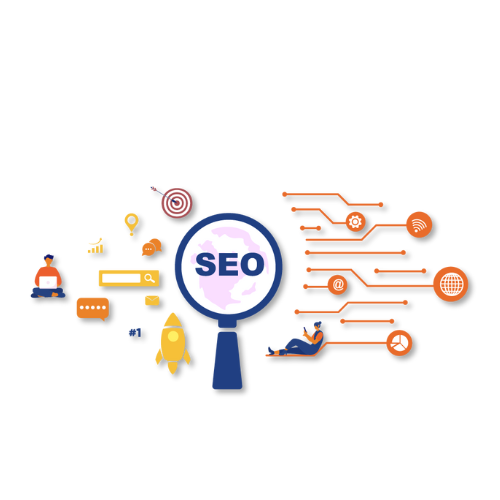
SEO, or Search Engine Optimization, is the process of improving a website’s visibility and ranking on search engines. The primary goal of SEO is to attract more organic (non-paid) traffic to a website by making it more appealing to search engines. This involves optimizing various elements of a website, both on-page and off-page, to meet the criteria set by search engines for high-quality content and user experience.
Investing time and effort into on-page SEO is a worthwhile endeavor that can lead to significant long-term benefits for your online presence. For a cost-effective solution, you need an affordable seo service provider company in india.
Types of SEO
SEO can be broadly categorized into three main types:
- On-Page SEO: This focuses on optimizing individual pages on a website to improve their search engine rankings. It involves enhancing various elements on the page itself, such as meta tags, header tags, content, and internal linking.
- Off-Page SEO: This involves activities that occur outside of your website but influence its ranking. It includes building backlinks from reputable sites, social media engagement, and other external signals that contribute to a site’s authority and relevance.
- Technical SEO: This aspect of SEO deals with the backend structure of a website. It includes optimizing site speed, mobile-friendliness, crawlability, and overall site architecture to ensure search engines can easily access and index your content.
On-Page SEO: Key Elements to Optimize
On-page SEO is fundamental to achieving high search engine rankings and delivering a positive user experience. Key on-page elements that require optimization include meta tags, header tags, and content. Let’s explore each of these in detail:
Meta Tags
Meta Titles: The meta title, or title tag, is one of the most important on-page SEO elements. It appears as the clickable headline in search results and should accurately reflect the page’s content. A well-crafted meta title should be concise, typically between 50-60 characters, and include relevant keywords to improve visibility.
Meta Descriptions: Meta descriptions provide a summary of the page’s content and appear below the meta title in search results. Although meta descriptions do not directly impact rankings, they play a crucial role in click-through rates (CTR). Aim for a compelling description of around 150-160 characters that includes relevant keywords and encourages users to click through to your site.
Header Tags
H1 Tags: The H1 tag represents the main heading of a page and is crucial for both SEO and user experience. It should be unique to each page and include primary keywords that reflect the page’s main topic. Proper use of the H1 tag helps search engines understand the content’s context and relevance.
H2, H3, and Beyond Subheadings (H2, H3, etc.) are used to structure content and improve readability. They break down the text into manageable sections, making it easier for users to find the information they need. Incorporating secondary keywords into these tags helps search engines understand the hierarchy and relevance of the content.
Content Optimization
Keyword Placement: Effective keyword placement involves strategically incorporating relevant keywords throughout the content. This includes the introduction, body, and conclusion of the page. Avoid keyword stuffing, which can negatively impact readability and rankings. Focus on natural and contextually relevant keyword usage.
Content Quality: High-quality content is crucial for on-page SEO. Ensure that your content is informative, engaging, and provides value to your readers. Use a clear and concise writing style, incorporate multimedia elements like images and videos, and regularly update content to keep it fresh and relevant.
Internal Linking: Internal links connect different pages within your website, helping users navigate and discover related content. They also distribute page authority and link equity throughout your site, which can enhance the SEO performance of individual pages.
Mobile Optimization: With the increasing use of mobile devices, ensuring that your content is mobile-friendly is essential. Responsive design and mobile-optimized content improve user experience and can positively impact search rankings.
Conclusion
On-page SEO is a critical aspect of any successful digital marketing strategy. By optimizing meta tags, header tags, and content, you can improve your website’s search engine rankings, attract more organic traffic, and enhance user experience.
SpaceEdge Technology: Digital Marketing Service Provider
SpaceEdge Technology is committed to transforming businesses through innovative and results-driven marketing strategies. As a leading marketing service provider, we specialize in delivering customized, data-driven solutions that help brands connect with their audience, grow their market presence, and achieve measurable success.